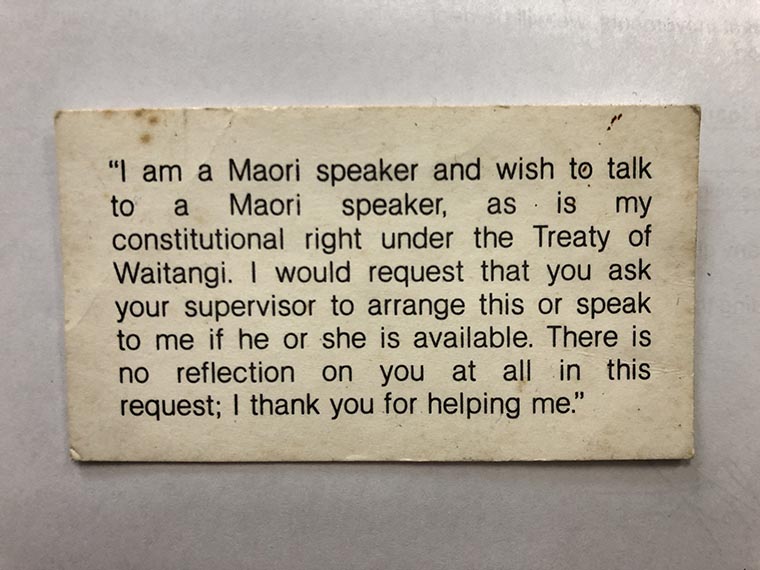Ngā Kaiwhakapūmau i te Reo

Alexander Turnbull Library, Reference: PAColl-8124.
As an incorporated society it is responsible to its membership, which has always included non-Māori as well as Māori.
Ngā Kaiwhakapūmau i te Reo was set up in the early 1980s as an initiative supported by the Department of Māori Affairs to establish a national network of voluntary community-based Māori Language Boards to promote te reo.
Its name reflects its ambition and optimism: ‘ngā kaiwhakapūmau i te reo’ can be translated as ‘those who make the [Māori] language permanent’. ‘Pūmau’ evokes the qualities needed to lead social change. Te Aka Māori Dictionary defines pūmau as ‘to be fixed, constant, permanent, true to, steadfast, faithful and staunch’.
A large archive of the early work of Ngā Kaiwhakapūmau can be seen, with permission, at the National Library in Wellington.

Picture supplied by Colin Feslier and Angela Belich